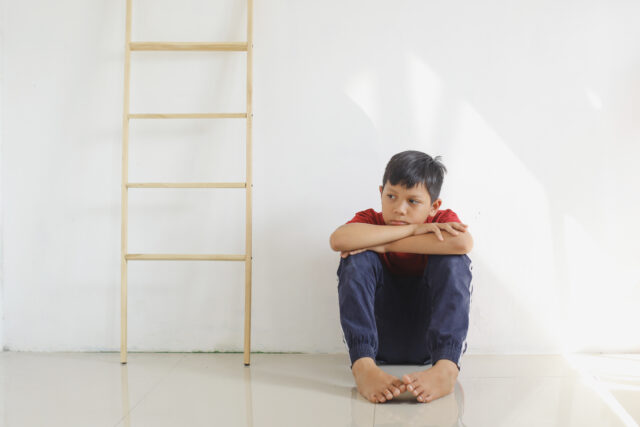Growing up in a chaotic environment can have long-lasting effects, shaping the way we interact with the world and view ourselves. While each dysfunctional childhood is unique, there are certain experiences that resonate with those who lived through them. If you grew up in a less-than-ideal home, you might find yourself nodding along with these points. Let’s delve into the unspoken truths that only people from dysfunctional families truly understand.
1. You have a heightened sense of responsibility.

Maybe you were the one taking care of your younger siblings when your parents were unavailable. Or perhaps you shouldered the burden of managing household tasks that most kids your age didn’t even know existed. While this may have made you mature and capable beyond your years, it can also lead to feeling overwhelmed and resentful as an adult.
2. Trust doesn’t come easily.

When the people who were supposed to love and protect you were inconsistent or unreliable, it’s no surprise that trust becomes a fragile thing. You might find yourself constantly on guard, questioning others’ motives, or having difficulty opening up to new people in your life.
3. You’re hyper-aware of others’ emotions.

Growing up in an unpredictable environment, you probably learned to read subtle cues in other people’s behaviour and anticipate their next move. This hypervigilance can make you acutely sensitive to other people’s feelings, sometimes at the expense of your own. You might be quick to pick up on tension in a room or notice when someone is upset, even if they haven’t explicitly said so.
4. You struggle with setting boundaries.

In a dysfunctional family, personal boundaries often get blurred or completely ignored. Maybe your parents shared intimate details of their problems with you, or your siblings felt entitled to your things without asking. This lack of clear boundaries can make it difficult for you to establish healthy limits in your adult relationships. You might find yourself overextending, saying “yes” when you mean “no,” or feeling guilty for asserting your needs.
5. You’re a master of self-blame.

When chaos reigned in your childhood home, you likely internalised the message that you were somehow responsible for it. Maybe you believed that if you were just a little better, quieter, or more obedient, things would have been different. This deep-seated sense of self-blame can follow you into adulthood, making it difficult to accept compliments, recognise your own achievements, or believe that you deserve happiness.
6. The idea of “normal” is a foreign concept.

What might seem like ordinary family dynamics to other people can feel completely alien to you. While your friends reminisce about happy childhood memories or share stories about supportive parents, you might struggle to relate. This lack of a shared understanding of “normal” can make it difficult to connect with people or feel like you belong.
7. You crave stability and routine.

Growing up in an environment where chaos and unpredictability were the norm, you likely yearn for stability and order in your adult life. This could manifest in a meticulous adherence to schedules, a strong preference for routine, or an aversion to change. While this desire for stability can be a source of comfort, it can also become limiting if it prevents you from taking risks or embracing new experiences.
8. You’re fiercely independent.

When you couldn’t rely on your family for support, you likely learned to fend for yourself at a young age. This self-reliance can be a valuable asset, but it can also make it difficult to ask for help or allow other people to care for you. You might be fiercely independent, preferring to do things on your own rather than risk feeling vulnerable or let down.
9. You have difficulty identifying and expressing emotions.

Growing up in an environment where emotional expression wasn’t safe or validated, you might have learned to suppress your feelings. This can make it challenging to identify what you’re feeling, and even harder to express it. You might struggle with vocabulary around emotions, defaulting to simple terms like “good” or “bad” rather than articulating the nuances of your inner world.
10. You’re drawn to people who need fixing.

The familiar patterns of dysfunction can be strangely comforting, even if they’re not healthy. You might find yourself repeatedly drawn to partners or friends who are emotionally unavailable, struggling with addiction, or otherwise in need of rescue. This can be a way of unconsciously recreating the dynamics of your childhood, or trying to “fix” the problems you couldn’t solve back then.
11. You’re a people-pleaser.

Growing up, your needs and desires were likely secondary to the needs of other people in your family. This can lead to a lifelong habit of putting everyone else first, even at your own expense. You might find it difficult to say no, prioritise your own well-being, or even recognise what you truly want.
12. You have a love-hate relationship with your family.

Family can be a source of both immense pain and deep love. You might feel a strong sense of loyalty and obligation to your family, even if they’ve hurt you repeatedly. At the same time, you might also harbour resentment, anger, or a desire to distance yourself from them. This complex mix of emotions can be confusing and difficult to navigate.
13. You struggle with perfectionism.

In a dysfunctional family, there’s often a sense that nothing is ever good enough. You might have been criticised for your appearance, your grades, or your behaviour, no matter how hard you tried. This can lead to a lifelong pursuit of perfection, driven by a fear of failure or disapproval. You might set impossibly high standards for yourself, obsess over details, or constantly strive to be the best.
14. You’re overly critical of yourself.

The negative messages you received as a child can become internalised, shaping the way you view yourself. You might be overly critical of your appearance, your abilities, or your choices. This constant self-judgment can erode your self-esteem and make it difficult to see yourself in a positive light.
15. You’re always waiting for the other shoe to drop.

Growing up in an unpredictable environment, you learned to expect the worst. This can lead to a pervasive sense of anxiety and anticipation of disaster. You might find it difficult to relax and enjoy the present moment, constantly waiting for the other shoe to drop. Even when things are going well, you might struggle to believe it will last.
16. You’re incredibly resilient.

Despite the challenges you’ve faced, you’ve managed to survive and even thrive. You’ve learned to adapt, overcome obstacles, and find strength in unexpected places. Your resilience is a testament to your inner strength and determination. While your past may have shaped you, it doesn’t define you.
17. You have a unique perspective on the world.

Your experiences have given you a unique perspective on life, one that’s often marked by compassion, empathy, and a deep understanding of human nature. You’ve seen the dark side of life, but you’ve also learned to appreciate the light. This allows you to connect with people on a deeper level, offer support and understanding, and find meaning in even the most challenging situations.




